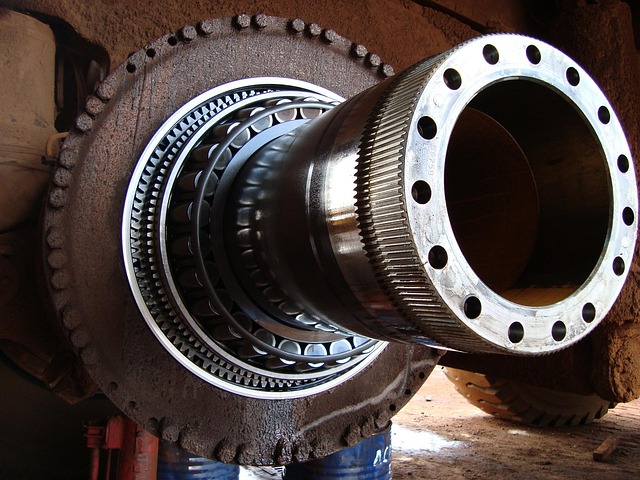VIN verification transforms truck management by providing access to a vehicle's history and records, enabling data-driven decisions for safety and efficiency. This process ensures compliance, enhances transparency, reduces accidents, and streamlines operations in the trucking industry using each truck's unique VIN code. It deters theft, improves diagnostics, and facilitates standardized checks, benefiting logistics, shipping, and overall fleet management.
“The impact of Vehicle Identification Number (VIN) verification on the trucking industry cannot be overstated. This game-changing technology is revolutionizing truck maintenance, safety, and efficiency. By ensuring precision and accuracy in vehicle identification, VIN verification plays a pivotal role in enhancing road safety. It streamlines processes, reduces theft, and promotes standardization across logistics and shipping. Discover how this innovative practice is transforming the way we manage trucks.”
- VIN Verification: A Game Changer for Trucks
- Enhancing Safety: Impact on Trucking Industry
- Precision and Accuracy in Vehicle Identification
- Streamlining Processes: Efficiency in Truck Maintenance
- Preventing Theft: The Role of VIN Verification
- Standardization: Benefits for Logistics and Shipping
VIN Verification: A Game Changer for Trucks

VIN verification, or Vehicle Identification Number checking, is a game-changer in the world of trucking and fleet management. This process involves scanning and verifying a truck’s unique VIN to access critical information about its history, maintenance records, and potential issues. For trucks, which often traverse long distances and are subject to diverse conditions, this level of scrutiny is invaluable.
By utilizing VIN verification, truck owners and operators can make informed decisions about vehicle acquisition, maintenance scheduling, and safety upgrades. It helps in identifying high-risk areas, such as structural integrity, past accidents, or unauthorized modifications, ensuring that trucks on the road are safe and reliable. This technology streamlines processes, reduces paperwork, and enhances overall fleet efficiency, making it an indispensable tool for modern trucking operations.
Enhancing Safety: Impact on Trucking Industry

The process of VIN verification plays a pivotal role in enhancing safety standards across various sectors, particularly within the trucking industry. With each vehicle having a unique Vehicle Identification Number (VIN), this method allows for comprehensive tracking and identification, ensuring that trucks meet stringent safety regulations. By verifying crucial components such as structural integrity, safety features, and historical maintenance records, VIN checks enable authorities to quickly identify and rectify any potential hazards or non-compliance issues.
This enhanced safety measure has a profound impact on the trucking industry’s overall operational efficiency and public perception. Trucks, being a vital component of logistics and transportation, now operate with greater transparency and accountability. VIN verification ensures that only safe and properly maintained vehicles are on the road, thereby reducing accidents, minimizing legal liabilities, and fostering trust among customers and stakeholders alike.
Precision and Accuracy in Vehicle Identification

Vehicle identification number (VIN) verification is a critical process that ensures the precise and accurate identification of every vehicle, including trucks. The VIN serves as a unique code that provides detailed information about the vehicle’s history, specifications, and manufacturing details. This level of precision is essential in the automotive industry, where identifying a specific truck among millions requires impeccable accuracy.
For trucks, which often have specialized uses and are subjected to demanding conditions, accurate VIN verification becomes even more critical. It helps in maintaining records of maintenance, ensuring compliance with safety standards, and facilitating efficient tracking and recall processes. By leveraging advanced technology and robust databases, VIN verification enhances the overall reliability and transparency of the trucking industry.
Streamlining Processes: Efficiency in Truck Maintenance

Vehicle Identification Number (VIN) verification plays a pivotal role in streamlining processes, particularly in the maintenance of trucks. By cross-referencing a truck’s unique VIN with comprehensive databases, mechanics and garages can efficiently access detailed vehicle histories, including service records, accident reports, and ownership changes. This information empowers them to conduct more accurate diagnostics, predict potential issues, and implement targeted repairs, thereby enhancing overall efficiency in truck maintenance.
The process simplifies routine tasks like scheduling maintenance, ordering parts, and ensuring compliance with regulatory standards. Moreover, VIN verification aids in preventing fraud and theft by confirming the authenticity of a truck’s identity. This level of transparency and accountability fosters trust among stakeholders, from fleet managers to insurance providers, contributing to a safer and more secure trucking industry.
Preventing Theft: The Role of VIN Verification

Vehicle Identification Number (VIN) verification plays a pivotal role in preventing vehicle theft, particularly for trucks, which are often targeted by thieves due to their high resale value and utility. By cross-referencing the VIN with comprehensive databases, authorities and private individuals can instantly verify ownership and history, making it much harder for stolen vehicles to enter the market. This process helps disrupt criminal networks that traffic in stolen goods, providing a crucial layer of security for truck owners.
Moreover, VIN verification facilitates quicker recovery of stolen trucks. When a vehicle is reported missing, a swift VIN check allows law enforcement to compare it against known stolen vehicles, enabling them to pinpoint its location and recover it promptly. This not only deters potential thieves but also offers peace of mind to truck owners, knowing that their assets are better protected in the event of theft.
Standardization: Benefits for Logistics and Shipping

Standardization plays a pivotal role in enhancing efficiency across various sectors, and the vehicle identification number (VIN) verification process is no exception. By implementing standardized VIN checks, logistics and shipping industries can streamline their operations, reducing errors and delays associated with identifying individual vehicles. This uniformity ensures that truck fleets, a cornerstone of modern supply chains, are easily traceable and verifiable, allowing for better inventory management and improved safety protocols.
The benefits extend to customs and border control, where standardized VIN data facilitates faster clearance processes. This efficiency gains are particularly significant in international shipping, as it reduces costs and expedites the movement of goods. Moreover, standardization fosters a more transparent system, making it easier to identify vehicles with known issues or tampering, thereby enhancing overall safety on the roads.
In conclusion, VIN verification has emerged as a pivotal innovation, transforming the way we manage and ensure safety in the trucking industry. Its multifaceted benefits, from enhancing safety and precision identification to streamlining maintenance processes and preventing theft, underscore its value for fleet managers and logistics professionals alike. By adopting this game-changing technology, the trucking sector can navigate towards a future that prioritizes efficiency, security, and standardization, ultimately improving overall operational effectiveness in the digital age.
